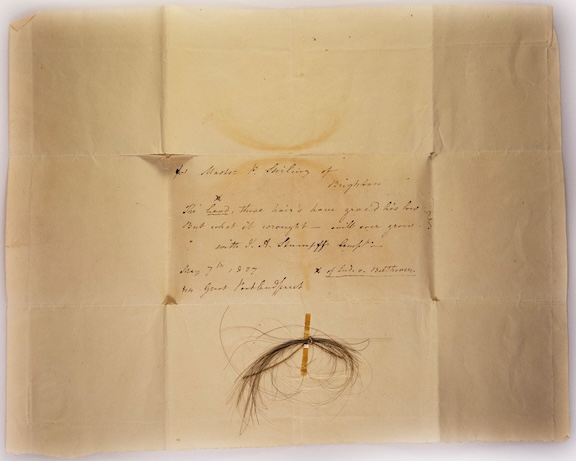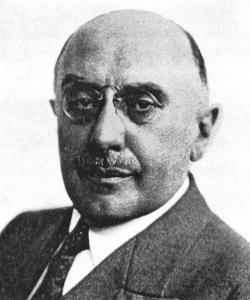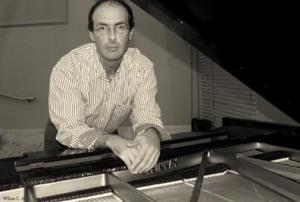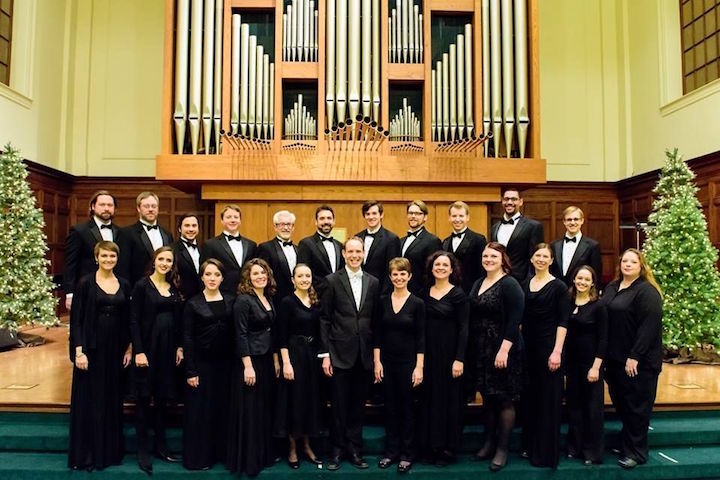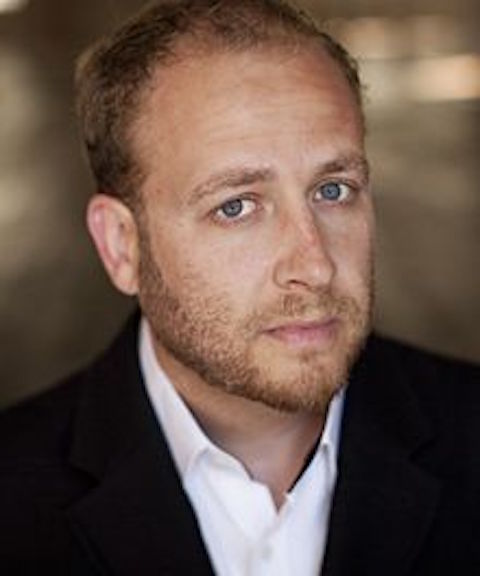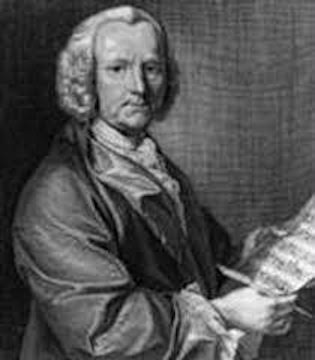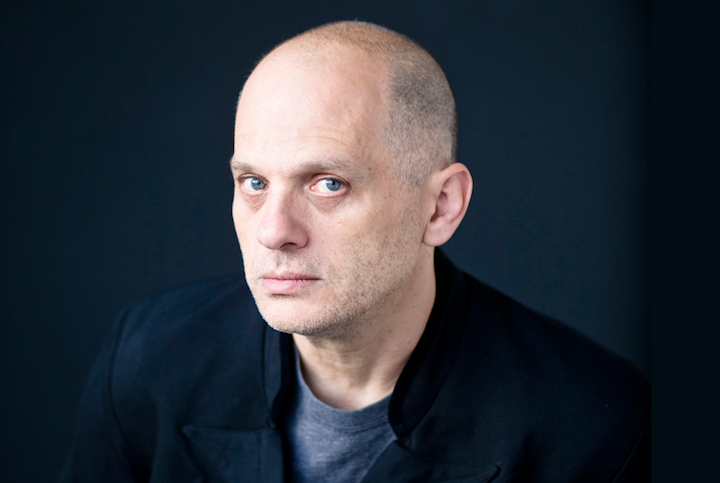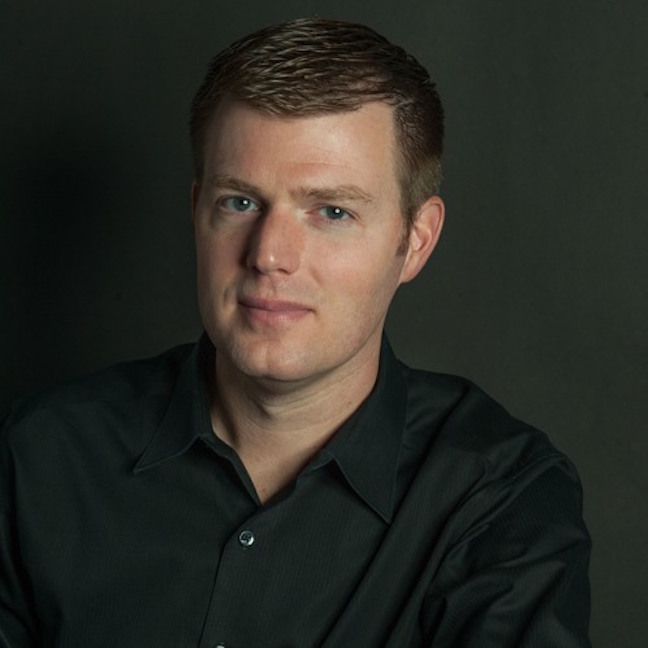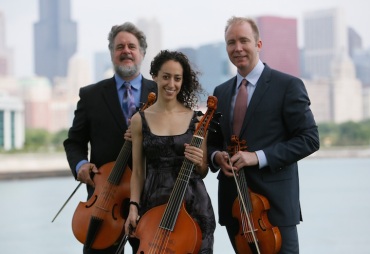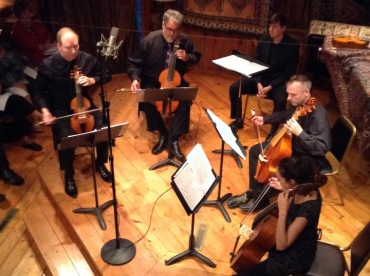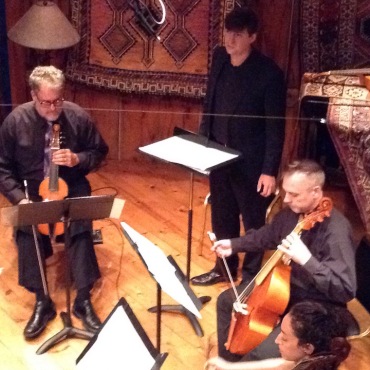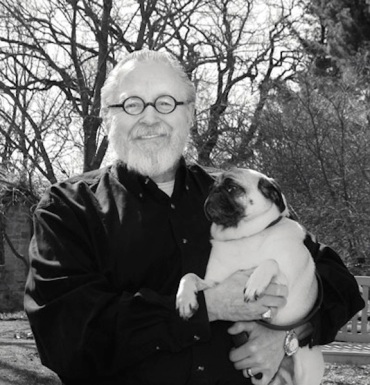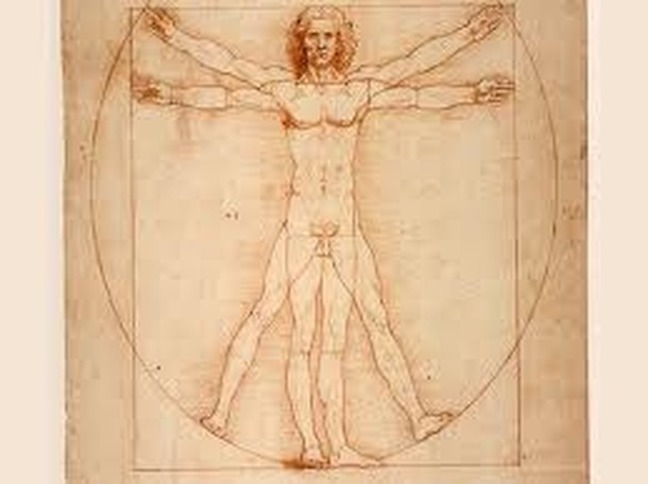The Well-Tempered Ear
Here’s what killed Beethoven
1 Comment
PLEASE HELP THE EAR. IF YOU LIKE A CERTAIN BLOG POST, SPREAD THE WORD. FORWARD A LINK TO IT OR, SHARE IT or TAG IT (not just “Like” it) ON FACEBOOK. Performers can use the extra exposure to draw potential audience members to an event. And you might even attract new readers and subscribers to the blog.
By Jacob Stockinger
What killed composer Ludwig van Beethoven (1770-1827, below) at 56?
It has only taken almost two centuries — from 1827 to 2024 — to find out.
In previous DNA tests done 17 years ago, scientists suggested that what killed LvB was gradual lead poisoning from the pewter tankards he used to drink water and alcohol.
There was just one problem.
They had the wrong hair.
But now scientists say they have a hair sample (below) that is certified as authentic snippets of hair taken from the great composer after his death.
The results of looking at the DNA have brought some surprises to the surface.
Here is a link to the latest research as reported on the website for Science Alert:
https://www.sciencealert.com/dna-from-beethovens-hair-reveals-surprise-some-200-years-later
Tags: #BlogPost, #BlogPosting, #FacebookPost, #FacebookPosting, #YouTubevideo, alcohol, Arts, audience, authentic, bed-ridden, Beethoven, blog, certify, Chamber music, choral music, Classical music, cure, death, DNA, Facebook, forensic science, genetics, hair, hepatitis, Jacob Stockinger, kill, lead, lead poisoning, link, liver, liver disease, Ludwig van Beethoven, medecine, medicine, Music, online, opera, Orchestra, pain, Piano, reserach, science, Science Alert, sciencealert.com, Sonata, surface, surprise, test, The Ear, treatment, Violin, vocal music, water, Website
Classical music: The Festival Choir of Madison performs Yiddish music Saturday night. The Wisconsin Chamber Orchestra performs the child-friendly “Beethoven Lives Next Door” for FREE twice on Saturday morning
Leave a Comment
PLEASE HELP THE EAR. IF YOU LIKE A CERTAIN BLOG POST, SPREAD THE WORD. FORWARD A LINK TO IT OR, SHARE IT or TAG IT (not just “Like” it) ON FACEBOOK. Performers can use the extra exposure to draw potential audience members to an event. And you might even attract new readers and subscribers to the blog.
ALERT: Do you have children or grandchildren you want to introduce to classical music? This Saturday morning, March 14, at 9:15 and 11:15 a.m. in the Goodman Community Center, at 149 Waubesa Street on Madison’s near east side, the Wisconsin Chamber Orchestra will give two FREE public performances of “Beethoven Lives Next Door.” The interactive, multi-media event includes live music and story-telling, and is designed for children age 4-10 and their families. Because space is limited, advance registration is strongly recommended. You can register for one of the performances by going to: https://wisconsinchamberorchestra.org/performances
By Jacob Stockinger
The Festival Choir of Madison will present its second concert of the season, “Ner Tamid: Eternal Flame,” on this Saturday night, March 14, at 8 p.m. at the First Unitarian Society of Madison at 900 University Bay Drive.
The choir (below), under the artistic direction of Edgewood College professor Sergei Pavlov (below, front right) will perform songs drawing on Yiddish folklore, Klezmer innovations, the pain and cultural fusion of the diaspora, and the poignancy of love in the Holocaust.
Spanning geography and time, this array of Sephardic folk songs, Middle Eastern melodies, the high European tradition of the late 19th century, and contemporary settings of ancient texts paints a rich picture of the breadth of Jewish musical tradition.
The performance includes works by Gustav Mahler, Jacob Weinberg (below top) and Alberto Guidobaldi (below bottom) for classical composers, as well as Paul Ben Haim and Josef Hadar, who are more contemporary Israeli and Jewish composers, respectively.
The Festival Choir of Madison (FCM) is an auditioned, mixed-voice volunteer choir of over 50 experienced singers. FCM performs thematic concerts of artistically challenging choral music from around the world for listeners who enjoy traditional, modern, and eclectic works, and for singers who enjoy developing their talents with others.
The choir performs three thematic concerts annually in November, March and May. It also serves as the core choir for the Wisconsin Chamber Orchestra’s annual “Messiah” concert. (In the YouTube video at the bottom, you can hear the Festival Choir of Madison perform “The West Lake” by Chinese composer Chen Yi in 2019.)
Concert admission — general seating — is $10 for students, $15 for senior citizens, and $20 for adults, with tickets available at the door the day of the concert. Tickets can also be purchased online at: https://www.brownpapertickets.com/event/4383496
To learn more about the choir and see details about its May 16 performance of Mozart’s Requiem, visit: www.festivalchoirmadison.org
Tags: #19thCentury, #AlbertoGuidobaldi, #ArtisticDirector, #BeethovenLivesNextDoor, #BlogPost, #BlogPosting, #BrownPaperTickets, #ChenYi, #Chinesecomposer, #ChoralMusic, #ContemporaryMusic, #EclecticMusic, #EdgewoodCollege, #FacebookPost, #FacebookPosting, #FacultyMember, #FamilyFriendly, #FestivalChoir, #FestivalChoirofMadison, #FirstUnitarianSocietyofMadison, #FolkMusic, #folksongs, #GeorgeFridericHandel, #GoodmanCommunityCenter, #GustavMahle, #Handel'sMessiah, #IsraeliComposer, #IsraeliMusician, #JacobWeinberg, #JewishComposer, #JewishComposers, #JewishMusic, #Jewishmusician, #JewishReligion, #JosefHadar, #KlezmerMusic, #LiveConcert, #LiveMusic, #LudwigVanBeethoven, #MessiahOratorio, #MIddleEast, #MiddleEastern, #Musicfaculty, #NerTermid, #PaulBenHaim, #SaturdayMorning, #SaturdayNight, #SeniorCitizen, #SergeiPavlov, #TheHolocaust, #TheWestLake, #VocalMusic, #WisconsinChamberOrchestra, #WolfgangAmadeusMozart, #YiddishMusic, #YouTubevideo, 19th century, 2019, 2020, Alberto Guidobaldi, alto, ancient, Artistic director, Arts, audience, audition, available, bass, Beethoven, Beethoven Lives Next Door, blog, Brown Paper Tickets, Chen Yi, Child, children, China, Chinese, Chinese composer, choral music, Classical music, classicalmusic, community, composer, Concert, conductor, contemporary music, core, cultural, culture, diaspora, door, eclectic, Edgewood College, eternal, eternal flame, Europe, European, event, experience, Facebook, faculty, families, Family, Festival Choir, Festival Choir of Madison, First Unitarian Society of Madison, flame, folk, folklore, forward, friend, friendly, fusion, future, geography, George Frideric Handel, Goodman, Goodman Community Center, Gustav Mahler, Handel, Holocaust, innovation, interactive, Israel, Israeli, Jacob Stockinger, Jacob Weinberg, Jewish, Jewish composer, Josef Hadar, klezmer, like, limited, link, live music, Love, Ludwig van Beethoven, Madison, Mahler, march, May, melodies, melody, Messiah, Middle East, Middle Eastern, mixed, mixed-voice, modern, morning, Mozart, multi-media, Music, Ner Tamid, night, online, Orchestra, pain, paint, Paul Ben Haim, performance, performer, poignancy, post, posting, professor, recommend, registration, Religion, Requiem, rich, Saturday, Season, seating, senior, Sephardic, Sergei Pavlov, setting, share, sing, singer, song, songs, soprano, space, story-telling, Student, symphony, tag, tenor, texts, thematic, theme, time, tradition, traditional, Unitarian, United States, Viola, Violin, vocal music, voice, volunteer, Weinberg, west lake, Wisconsin, Wisconsin Chamber Orchestra, Wolfgang Amadeus Mozart, works, Yiddish, Yiddish music, YouTube
Classical music: The Madison Choral Project features a world premiere when it performs a “timeless” program this Saturday night and Sunday afternoon
1 Comment
By Jacob Stockinger
The Madison Choral Project (below) bills itself as Madison’s only professional and paid choir, and judging by the results, the a cappella group has succeeded, creating many loyal fans. (You can hear a sample performance — of a world premiere, no less — in the YouTube video at the bottom.)
Such success is in large part thanks to the efforts of its founder, director and conductor Albert Pinsonneault (below). Originally a music professor at Edgewood College, Pinsonneault now works at Northwestern University.
He commutes from his home in Madison where he continues his work with the Madison Choral Project.
You can sample his and the choir’s impressive music-making this weekend at two performances in two different venues of a concert called “Drown’d in One Endlesse Day.”
Here are details:
“Drown’d in One Endlesse Day” features a world premiere of Wisconsin composer Eric William Barnum (below).
The Madison Choral Project champions new music. But also on the eclectic program are new and old pieces exploring the transformational moments when “time seems to stop.”
Featured composers and compositions include: the motet Komm, Jesu, Komm by Johann Sebastian Bach; “Crucifixus” by Antonio Lotti (below top); There is an Old Belief by the British composer Sir Charles Hubert Hastings Parry (below second); Credo by Finnish composer Einojuhani Rautavaara (below third, in photo by Getty Images); I Live in Pain and Last Spring by the Pulitzer Prize-winning American composer David Lang (below fourth); and Entreat Me Not to Leave You by Dan Forrest (below bottom).
PERFORMANCES:
On Saturday night at 7:30 p.m.: CHRIST PRESBYTERIAN CHURCH, 944 East Gorham Street in Madison on the near east side
On Sunday afternoon at 2 p.m.: St. ANDREW’S EPISCOPAL,
1833 Regent Street in Madison on the near west side
Tickets are $40 for preferred seating; $24 for general admission; and $10 for students.
To buy tickets online (they are also available at the door) as well as to see more background, reviews, information and several videos of MCP performances, go to:
Tags: #ChoralMusic, #JesusChrist, #JohannSebastianBach, #NewMusic, #PulitzerPrize, #WorldPremiere, Albert Pinsonneault, American, Antonio Lotti, Artistic director, Arts, Bach, background, Baroque, Britain, British, Choir, choral music, church, Classical music, commute, composer, conductor, critic, crucifixion, Dan Forrest, David Lang, director, Early music, eclectic, Edgewood College, Einojuhani Rautavaara, English, Episcopal, fans, Finnish, founder, Getty Images, Hubert Parry, information, Jacob Stockinger, Jesus, Johann Sebastian Bach, loyal, Madison, Madison Choral Project, MCP, motet, Music, Northwestern University, paid, pain, pay, premiere, Presbyterian, professional, professor, program, Pulitzer Prize, review, Spring, stop, Student, ticket, time, UK, United States, University of Wisconsin-Madison School of Music, University of Wisconsin–Madison, venue, video, vocal music, Website, Wisconsin, world, world premiere, YouTube
Classical music: Old music and new music mingle superbly at the Token Creek Chamber Music Festival through a concert with viols, a countertenor and a new composition by John Harbison
2 Comments
By Jacob Stockinger
Here is a special posting, a review written by frequent guest critic and writer for this blog, John W. Barker. Barker (below) is an emeritus professor of Medieval history at the University of Wisconsin-Madison. He also is a well-known classical music critic who writes for Isthmus and the American Record Guide, and who for 12 years hosted an early music show every other Sunday morning on WORT FM 89.9 FM. He serves on the Board of Advisors for the Madison Early Music Festival and frequently gives pre-concert lectures in Madison. Barker also provided the performance photos for this review.
By John W. Barker
The second of the Token Creek Chamber Music Festival’s three public concerts, which took place on Tuesday evening, was a study in the old and the new, and the mingling thereof.
The program title was, in fact, “Viol Music, Then and Now.” The performing group was the Second City Musick Consort of Viols of Chicago (below) — three players from there, plus visitor Brady Lanier.
Much, but hardly all, of their contributions were consort pieces of the 16th and 17th centuries, although a certain number of transcriptions — ironically, of later music — were involved.
Three Fantasias for three viols by William Byrd and one by John Jenkins for four viols were prime specimens. Two pairs of examples from Henry Purcell’s Fantasias in 4 Parts represented a late contribution to the consort literature, but were probably intended — primarily, if not exclusively — for members of the violin family, not viols.
With the addition of countertenor Nathan Medley, groups of “consort songs” were presented: three by Byrd and one each by four different composers of the late-Elizabethan and early Stuart periods. These were capped by one of the favorite airs of Purcell, “Fairest Isle”— which is a part of his large “semi-opera” King Arthur.
The program’s centerpiece, however, was a new work by festival co-founder and co-artistic director, John Harbison (below), who won a Pulitzer Prize and has been a MacArthur “genius grant” Fellow and who teaches at MIT.
The nature and the scoring of this work, The Cross of Snow, was defined by the patron who commissioned it. This was local businessman William Wartmann (below), who intended it as a tribute to his deceased wife, the painter and singer Joyce Wartmann.
It was understood from the outset that it would be written for countertenor and consort of viols, and that the texts set would come from 19th-century poetic literature.
The choice eventually fell on Henry Wadsworth Longfellow, who also lost his wife tragically, in a fire. The three poems set are: The Cross of Snow, Suspira and “Some day, some day.” All of them deal with the deep and enduring pain over the loss of a loved one. The three settings are framed by a Prelude and a Postlude for the consort alone. (You can hear the poem “The Cross of Snow” in the YouTube video at the bottom.)
Harbison has a strong sense of tradition and a genuine sympathy for Baroque music. Still, in this composition he by no means attempts simply to imitate long-past styles. While he is interested in exploring the special coloring and harmonics of the viols, he also brings to them a lot of the playing techniques familiar from writing for modern stringed instruments, but alien to viols. Indeed, the instrumental role in this work could pretty easily be transferred from viols to modern strings.
Nevertheless, Harbison’s stylistic assimilations run deep. The five movements, and especially the quite contrapuntal Postlude, are built upon allusions to chorales by Johann Sebastian Bach (below). And, quite wisely, the consort played transcriptions of three such pieces in conjunction with Harbison’s score.
Moreover, it was decided to perform Harbison’s new work twice, once in each half of the concert. This was most helpful in allowing a deepened appreciation of the emotional content of both the poetry and the music. The vocal lines are strongly etched, and were beautifully sung by countertenor Medley, a superb artist.
With the final program, on this Friday night at 7:30 p.m. and Sunday afternoon at 4 p.m., the spotlight will be exclusively on Franz Schubert (below) — his “Die Schoene Muellerin” (The Beautiful Miller’s Daughter) song cycle and the famous “Trout” Piano Quintet — music in a world between the two evoked by this concert.
For more information, visit: http://tokencreekfestival.org
Tags: air, American Record Guide, Arts, Bach, Baroque, Cello, Chamber music, Chicago, Chorale, Classical music, color, countertenor, Die Schoene Muellerin, Early music, Elizabethan, Franz Schubert, genius grant, harmony, Henry Purcell, History, Isthmus, Jacob Stockinger, Johann Sebastian Bach, John Harbison, John Jenkins, John W. Barker, literature, Longfellow, MacArthur Fellow, Madison, Madison Early Music Festival, Massachusetts Institute of Technology, Medieval, MIT, Music, opera, pain, painter, patron, Piano, poem, postlude, Prelude, Pulitzer Prize, Second City Musick, singer, song, song cycle, strings, Stuart, Token Creek Chamber Music Festival, tradition, transcriptions, Trout Quintet, United States, University of Wisconsin-Madison School of Music, University of Wisconsin–Madison, Viol, Viola, Violin, vocal music, William Byrd, William Wartmann, Wisconsin, WORT-FM 89.9, YouTube
Classical music: Can classical music cure cancer? Increase intelligence or IQ? Relieve pain? It may be worth considering at a time of New Year’s resolutions for healthy living.
1 Comment
By Jacob Stockinger
The Ear recently came across a compilation of the health benefits of listening to classical music.
Some of it seems farfetched.
I, for one, am dubious about the claim that you can cure cancer by listening to the Fifth Symphony by Ludwig van Beethoven (below top) or that you can enhance intelligence and mental alertness to a specific section of a specific work, such as the “Spring” section of “The Four Seasons” by Antonio Vivaldi (below bottom).
And there are other claims relating to disease and intelligence, like The Mozart Effect for young children, that seem dubious or exaggerated.
But these studies seem to come from some prestigious journals and organizations as well as some careful studies and experiments or trials.
You can read the methods and results, then decide for yourself. Here is a link:
http://tribune.com.pk/story/802304/5-health-benefits-of-classical-music/
And here is a link to one of the works that is supposed to relieve pain — the Sonata for Two Pianos in D Major by Wolfgang Amadeus Mozart, performed by Radu Lupu and Murray Perahia in a popular YouTube video:
Have a Happy New Year though listening!
Tags: Arts, Baroque, cancer, cancer cure, Chamber music, Classical music, concerto, cure cancer, epilepsy, Health, intelligence, IQ, Jacob Stockinger, Ludwig van Beethoven, mental alertness, Mental health, Mozart, Mozart Effect, Murray Perahia, Music, New Year, pain, Piano, Piano sonata, Radu Lupu, resolutions, Sonata, Vivaldi, Wolfgang Amadeus Mozart, YouTube
- May 2024
- April 2024
- March 2024
- February 2024
- January 2024
- December 2023
- November 2023
- October 2023
- September 2023
- August 2023
- July 2023
- June 2023
- May 2023
- April 2023
- March 2023
- February 2023
- January 2023
- December 2022
- October 2022
- September 2022
- June 2022
- May 2022
- April 2022
- March 2022
- July 2021
- June 2021
- May 2021
- April 2021
- March 2021
- February 2021
- January 2021
- December 2020
- November 2020
- October 2020
- September 2020
- August 2020
- July 2020
- June 2020
- May 2020
- April 2020
- March 2020
- February 2020
- January 2020
- December 2019
- November 2019
- October 2019
- September 2019
- August 2019
- July 2019
- June 2019
- May 2019
- April 2019
- March 2019
- February 2019
- January 2019
- December 2018
- November 2018
- October 2018
- September 2018
- August 2018
- July 2018
- June 2018
- May 2018
- April 2018
- March 2018
- February 2018
- January 2018
- December 2017
- November 2017
- October 2017
- September 2017
- August 2017
- July 2017
- June 2017
- May 2017
- April 2017
- March 2017
- February 2017
- January 2017
- December 2016
- November 2016
- October 2016
- September 2016
- August 2016
- July 2016
- June 2016
- May 2016
- April 2016
- March 2016
- February 2016
- January 2016
- December 2015
- November 2015
- October 2015
- September 2015
- August 2015
- July 2015
- June 2015
- May 2015
- April 2015
- March 2015
- February 2015
- January 2015
- December 2014
- November 2014
- October 2014
- September 2014
- August 2014
- July 2014
- June 2014
- May 2014
- April 2014
- March 2014
- February 2014
- January 2014
- December 2013
- November 2013
- October 2013
- September 2013
- August 2013
- July 2013
- June 2013
- May 2013
- April 2013
- March 2013
- February 2013
- January 2013
- December 2012
- November 2012
- October 2012
- September 2012
- August 2012
- July 2012
- June 2012
- May 2012
- April 2012
- March 2012
- February 2012
- January 2012
- December 2011
- November 2011
- October 2011
- September 2011
- August 2011
- July 2011
- June 2011
- May 2011
- April 2011
- March 2011
- February 2011
- January 2011
- December 2010
- November 2010
- October 2010
- September 2010
- August 2010
- July 2010
- June 2010
- May 2010
- April 2010
- March 2010
- February 2010
- January 2010
- December 2009
- November 2009
- October 2009
- September 2009
- August 2009
Archives
- 2,493,291 hits
Blog Stats
Recent Comments
| welltemperedear on What do you think of the… | |
| Scott on What do you think of the… | |
| welltemperedear on Yunchan Lim’s Chopin etudes ar… | |
| bratschespeilerin on What do you think of the… | |
| MARVIN P WICKENS on Yunchan Lim’s Chopin etudes ar… |
Tags
#BlogPost #BlogPosting #ChamberMusic #FacebookPost #FacebookPosting #MeadWitterSchoolofMusic #TheEar #UniversityofWisconsin-Madison #YouTubevideo Arts audience Bach Baroque Beethoven blog Cello Chamber music choral music Classical music Compact Disc composer Concert concerto conductor Early music Facebook forward Franz Schubert George Frideric Handel Jacob Stockinger Johannes Brahms Johann Sebastian Bach John DeMain like link Ludwig van Beethoven Madison Madison Opera Madison Symphony Orchestra Mead Witter School of Music Mozart Music New Music New York City NPR opera Orchestra Overture Center performer Pianist Piano post posting program share singer Sonata song soprano String quartet Student symphony tag The Ear United States University of Wisconsin-Madison School of Music University of Wisconsin–Madison Viola Violin vocal music Wisconsin Wisconsin Chamber Orchestra wisconsin public radio Wolfgang Amadeus Mozart YouTube
